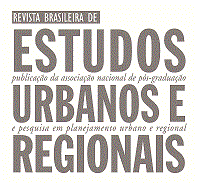Abstract
The presence of the spatial element in the reflections of Henri Lefebvre does not merely result from work involving the translation and adaptation of critical thinking developed up until his time. The realization that not even the highest expression of the critical tradition had sufficiently noticed this crucial dimension of life was one of the connecting points between theoretical advance, represented by the spatial orientation of critique, and the effort to renew the utopian horizon. A very distinct assimilation of the early work of Marx and the proximity to revolutionary romanticism, particularly of Nietzschean extraction, rendered a decisive impact on Lefebvrian conception. Practice, body, pleasure and instincts, recovering their place in the critical social imagination, went on to become the basis for the re-foundation of a theoretical-practical program that involved the formulation of the notion of the right to the city. The perspective of appropriation thus replaced the vague emancipatory statements of the subject's philosophies.
Keywords:
Henri Lefebvre; The right to the city; Romanticism; Appropriation; Everyday life
